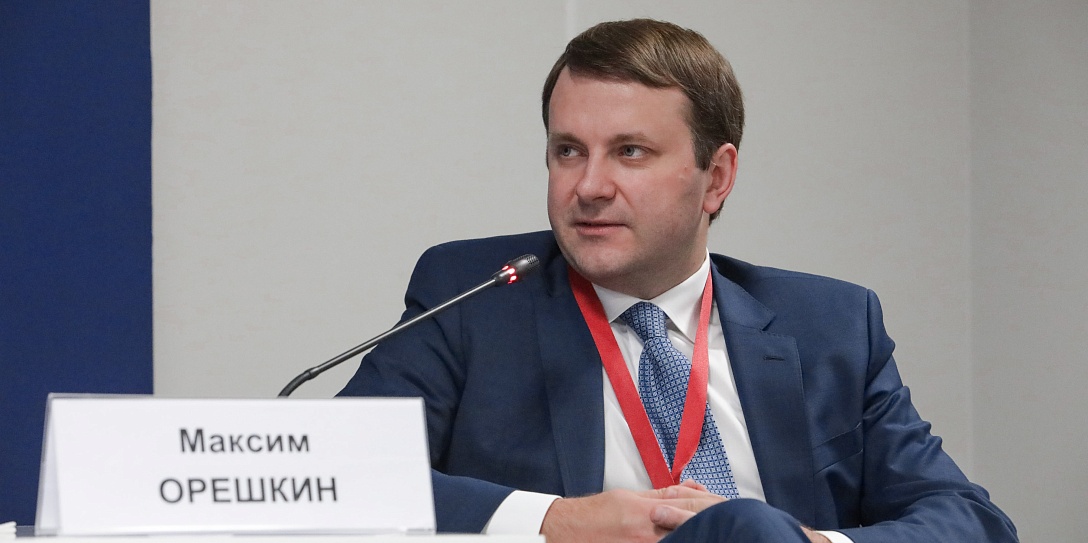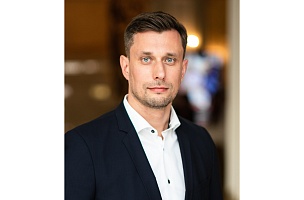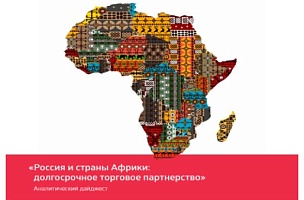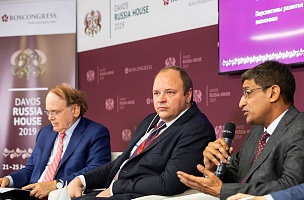KEY CONCLUSIONS
Pilot project on increasing labour productivity produces a tangible economic effect
“Those enterprises that joined the project in late 2017 to early 2018 <…> 69% of those enterprises showed an increase in labour productivity by more than 10%. The enterprises that are already in the project <…> report 13% revenue growth, and a 19% increase in tax payments,” Maxim Oreshkin, Minister of Economic Development of the Russian Federation.
“We are one of 25 pilot enterprises chosen to take part in the first stage of the project. <…> Rates of growth have been stable at our enterprise <…> for 15 years. <…> Four months after the start of the pilot workflow we halved the inventories for production in progress,” Ivan Kolchanov, General Manager, Suksun Optical & Mechanical Plant.
Changing production standards is the key element of increased labour productivity
“The employees are becoming a lot more engaged in the processes at the enterprise. <…> The major goal, the main function of this project is a step-by-step change of production standards. We have started with industrial enterprises. <…> After a while, as soon as we have covered more regions, more areas, individual enterprises, organizations <…> this effect must become cumulative,” Maxim Oreshkin, Minister of Economic Development of the Russian Federation.
“Will it help us reach the goal of increasing overall labour productivity? This project alone will not, that’s for sure. It must be one of the elements. There will be no increase in labour productivity without growing investment activities, modernization, and digitalization. All these elements are only working if the people are engaged in the process,” Maxim Oreshkin, Minister of Economic Development of the Russian Federation.
PROBLEMS
Quality employment deficit
“Now we are in a situation where our country lacks quality employment. As enterprises become more efficient, they don’t cut jobs, on the contrary they start recruiting new personnel,” Maxim Oreshkin, Minister of Economic Development of the Russian Federation.
Increased labour productivity cannot be the only efficiency criterion
“One of the risks of this project <…> is to make examples, failing at the same time to saturate the entire staff with culture. <…> Quality is definitely the major criterion. As we start building in quality in the workflow, we switch to the principle of ‘don’t make a defect, don’t accept a defect, don’t pass a defect’,” Nikolay Solomon General Director, Federal Competence Centre (FCC).
“Labour productivity is a very appropriate indicator, but it needs some additional weight,” Sergey Nedoroslev, Chairman of the Board of Directors, Kaskol.
Reduction of added value per job
“If we use job added value <…> to evaluate labour productivity, <…> it dropped by 41% from 2014 to 2017. <…> According to our calculations, it cost the entire economy 43 trillion roubles of added value. The country is still dependent on raw materials, and the main production sectors, which yield most added value, are those that are involved in production and processing of raw materials. <…> Machinery and equipment productions are still among the last,” Boris Titov, Presidential Commissioner of the Russian Federation for the Protection of Entrepreneurs’ Rights.
SOLUTIONS
Systematic approach to increasing competitiveness
“There are three ways of dealing with this problem. <…> The first block is everything about lifting barriers, when their role in risk reduction is incompatible with the harm they do due to excess, archaic regulation. The second block is everything about corporate culture. <…> The third block is everything that has to do with technology, automation. <…> There is also a fourth block, that is specialization, outsourcing,” Alexey Repik, President, Delovaya Rossiya (Business Russia); Chairman of the Board, Group R-Pharm.
“Talking about systematic measures. <…> If we start with re-equipping enterprises, we have Industrial Development Fund. <…> As for training, there is a training programme for managerial personnel, that is capable of training around 3,300 people a year. <…> Together with Russian Export Center we provide support for exports. <…> We will review the legal barriers. <…> The system of tax incentives is going to be some sort of follow-up of the initial research,” Petr Zaselsky, Deputy Minister of Economic Development of the Russian Federation
Choosing priority courses of development
“The measures set out in the national project and focus on an individual enterprise, are not sufficient. <…> Almost all European countries, China, Canada have reformed their strategies. <…> If we sum up all those strategies, they all prioritize digital economy, and, besides, they choose priorities. <…> Our development should also follow courses, chosen priorities: economy of simple things, hospitality industry, technological security, green environment, mobility, happy longevity industry, affordable energy efficient home, and deep processing of raw materials,” Boris Titov, Presidential Commissioner of the Russian Federation for the Protection of Entrepreneurs’ Rights.
Emphasis on increasing added value
“High labour productivity without competitiveness is a real case. <…> Therefore, here the emphasis is on the added value. You be highly productive in make something that no one needs — it’s crucial to avoid this trap,” Maxim Oreshkin, Minister of Economic Development of the Russian Federation.
“You can be very inefficient but remain a monopolist that makes a product that everyone needs. <…> Here added value is often created because you place more and more value on your result,” Alexey Repik, President, Delovaya Rossiya (Business Russia); Chairman of the Board, Group R-Pharm.
Corporations participating in co-funding projects
“Do you think that if something always is free of charge, the attitude towards it will be just that? And business co-funding will actually prove that the product you’ve made is really good,” Alexey Repik, President, Delovaya Rossiya (Business Russia); Chairman of the Board, Group R-Pharm.
“It’s about commercialization of our services and about co-funding, <…> it’s about aid from big corporations,” Nikolay Solomon General Director, Federal Competence Centre (FCC).
Granting tax incentives
“We’re currently thinking about granting tax incentives to enterprises which reached certain target values in productivity. <…> Thirdly, it’s a partial compensation of costs to the enterprises which will join the process <…> of training their employees,” Nikolay Lyubimov, Governor of Ryazan Region.
Establishing information environment for implementing projects on increasing productivity
“In 2018, which we proclaimed the year of lean production, we managed to engage a lot of governmental bodies <…> and enterprises. It helped us establish an information environment during 2017 and 2018 <…>, in this regard it was very easy for us to join the new project on increasing labour productivity,” Nikolay Lyubimov, Governor of Ryazan Region.






